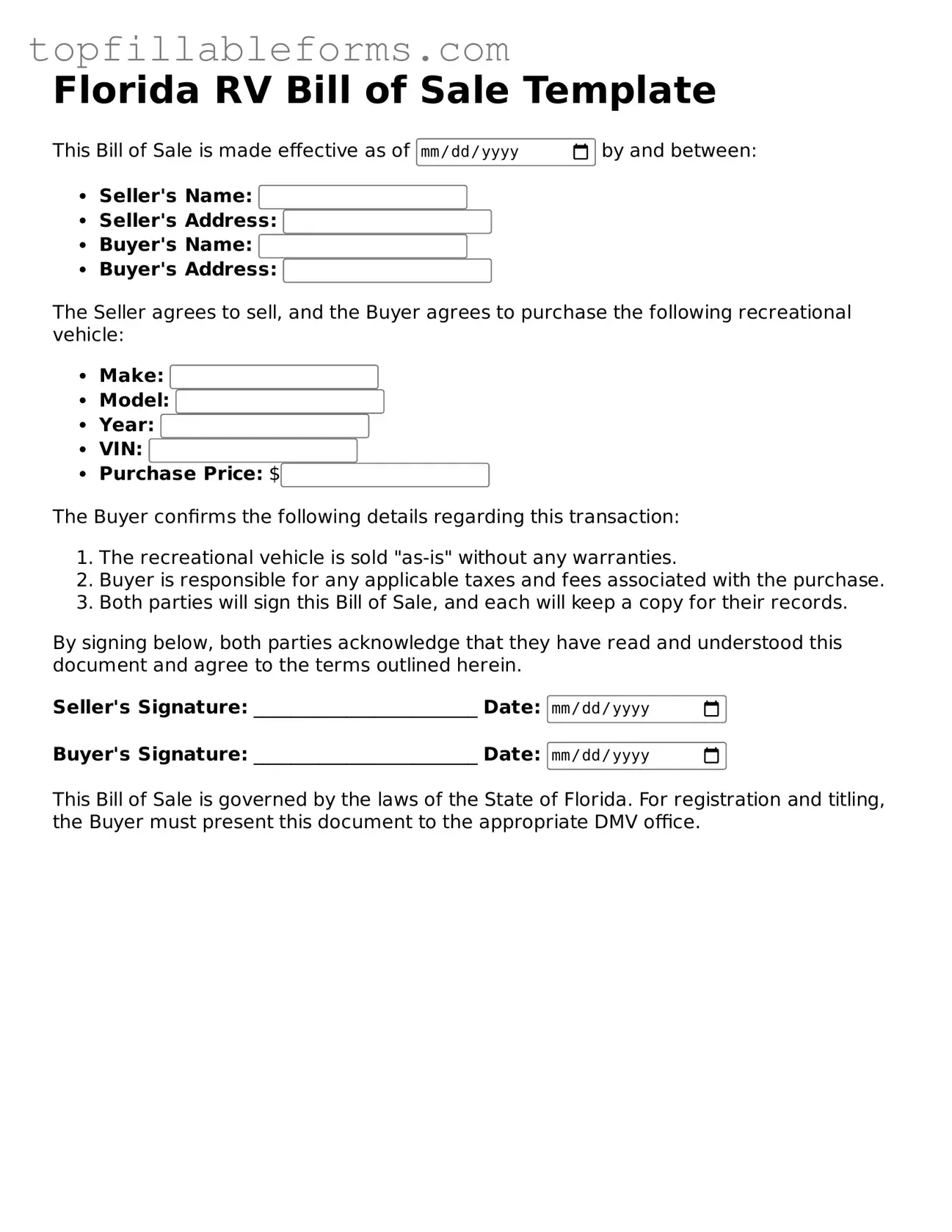Attorney-Verified RV Bill of Sale Template for Florida
The Florida RV Bill of Sale form serves as a crucial document in the transfer of ownership for recreational vehicles within the state. This form provides essential details about the transaction, including the buyer, seller, and vehicle information. Understanding its significance can help ensure a smooth and legally compliant sale.
Open RV Bill of Sale Editor Here

Attorney-Verified RV Bill of Sale Template for Florida
Open RV Bill of Sale Editor Here
Finish the form now and be done
Finish your RV Bill of Sale online by editing, saving, and downloading fast.
Open RV Bill of Sale Editor Here
or
▼ PDF File
